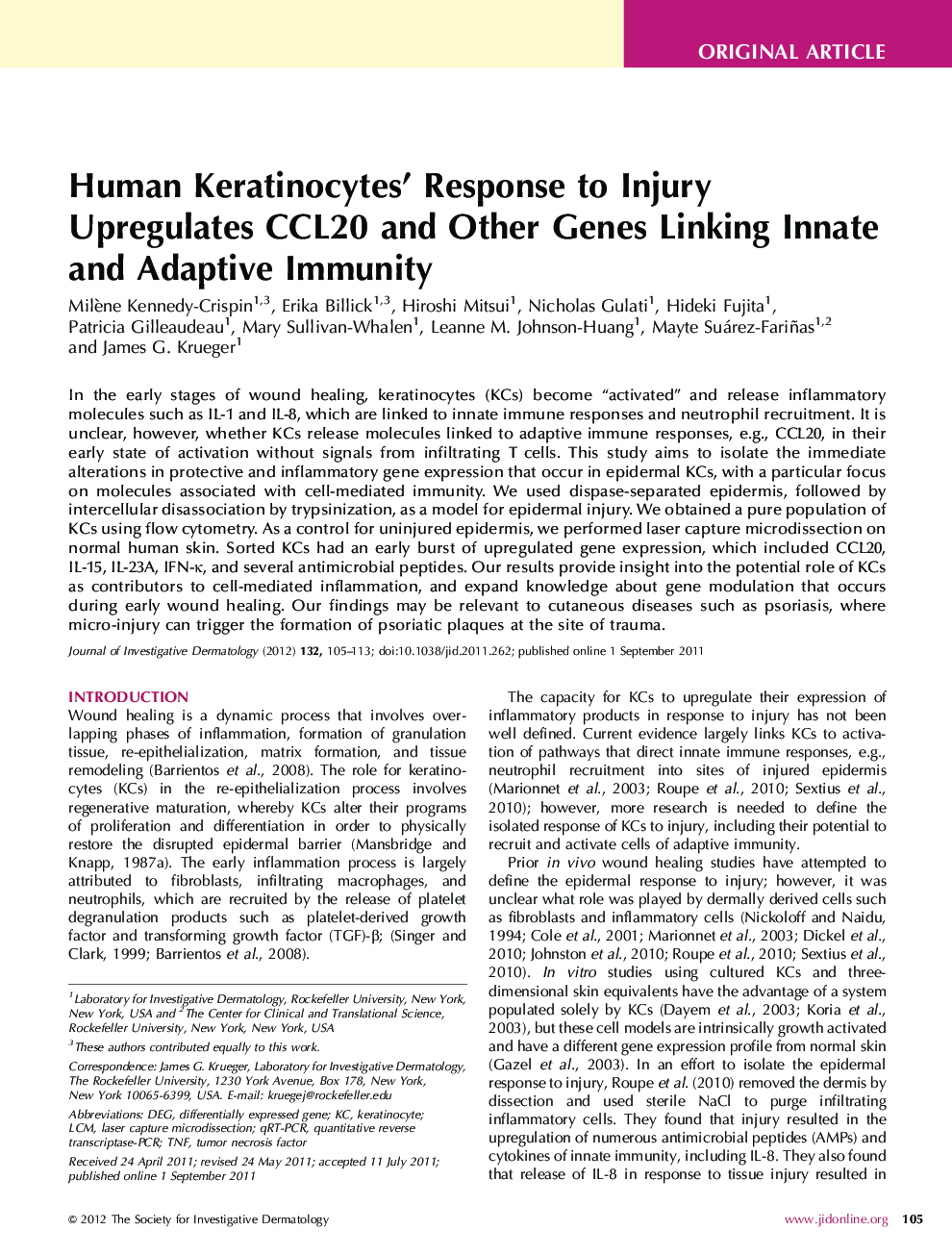| Article ID | Journal | Published Year | Pages | File Type |
|---|---|---|---|---|
| 6077702 | Journal of Investigative Dermatology | 2012 | 9 Pages |
Abstract
In the early stages of wound healing, keratinocytes (KCs) become “activated” and release inflammatory molecules such as IL-1 and IL-8, which are linked to innate immune responses and neutrophil recruitment. It is unclear, however, whether KCs release molecules linked to adaptive immune responses, e.g., CCL20, in their early state of activation without signals from infiltrating T cells. This study aims to isolate the immediate alterations in protective and inflammatory gene expression that occur in epidermal KCs, with a particular focus on molecules associated with cell-mediated immunity. We used dispase-separated epidermis, followed by intercellular disassociation by trypsinization, as a model for epidermal injury. We obtained a pure population of KCs using flow cytometry. As a control for uninjured epidermis, we performed laser capture microdissection on normal human skin. Sorted KCs had an early burst of upregulated gene expression, which included CCL20, IL-15, IL-23A, IFN-κ, and several antimicrobial peptides. Our results provide insight into the potential role of KCs as contributors to cell-mediated inflammation, and expand knowledge about gene modulation that occurs during early wound healing. Our findings may be relevant to cutaneous diseases such as psoriasis, where micro-injury can trigger the formation of psoriatic plaques at the site of trauma.
Related Topics
Health Sciences
Medicine and Dentistry
Dermatology
Authors
Milène Kennedy-Crispin, Erika Billick, Hiroshi Mitsui, Nicholas Gulati, Hideki Fujita, Patricia Gilleaudeau, Mary Sullivan-Whalen, Leanne M. Johnson-Huang, Mayte Suárez-Fariñas, James G. Krueger,
